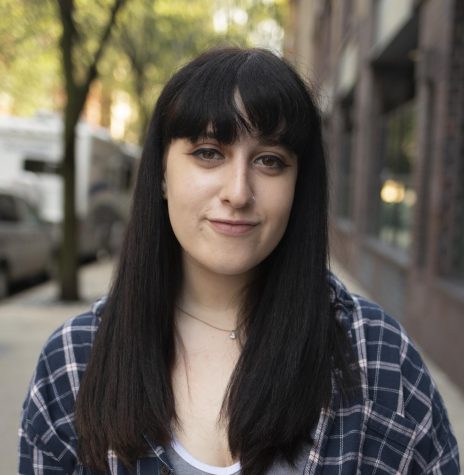Female Rockers’ Fight for Equality in a Male-Dominated Arena
October 5, 2017
Female-driven indie acts have made strides online in recent years, gaining popularity on platforms such as Tumblr and Bandcamp. Artists such as Cyberbully Mom Club and Frankie Cosmos have risen to popularity by means of the internet, each possessing uniquely candid vocals and a fresh take on what it means to be female in the modern music scene. These artists are not only rising above the traditional male-dominated music scene, but they are making active strides and speaking out on the topic of misogyny in the industry.
“Put me on a pedestal and I’ll only disappoint you/Tell me I’m exceptional, I promise to exploit you,” Courtney Barnett sings on the single “Pedestrian At Best” off her critically acclaimed 2015 release “Sometimes I Sit and Think, and Sometimes I Just Think.” Barnett is unapologetic, self-assured and refreshingly frank. The Australian singer-songwriter contrasts the recent indie songwriting trends of melancholia and self-pity with confrontational and confessional wit. Barnett plays no victim — she is strong, empowered and unafraid to call the shots. She speaks without restraint and is a truly honest lyricist.
From Florence Welch to Alice Glass, female artists have revamped one of the most arguably sexist industries. While there are definitely still improvements to be made, these artists have taken the reigns both in the studio and on the internet to show who is really boss.
“Art gives me an outlet where I can be aggressive in a world where I usually can’t be, and part of it was asserting this abstract female power in these male-dominated arenas,” multi-instrumentalist Claire Boucher — also known as Grimes — said in a Pitchfork interview. “The video [for her song “Oblivion”] is somewhat about objectifying men.”
However, the harsh reality is that there is still plenty of sexism in music today. Lauren Mayberry, the lead singer of Scottish indie-pop band CHVRCHES is widely known as an activist for women in the music industry after reporting several cases of online sexual harassment. “Why should women ‘deal’ with this?” Mayberry said in a 2013 interview with The Guardian. “I am incredibly lucky to be doing the job I am doing at the moment — and painfully aware of the fact that I would not be able to make music for a living without people on the internet caring about our band. But does that mean that I need to accept that it’s OK for people to make comments like this, because that’s how women in my position are spoken to?” Mayberry has since launched a £50,000 fundraising campaign for the Glasgow Rape Crisis center and has remained a driving advocate of gender equality in the industry.
From indie rock to alternative to experimental, women in the music industry are making strides to fight back against gender inequality and sexism. Through campaigns, tours and countactivist movements, female artists are unafraid to show how meaningful their impact on the business really is.
A version of this article appeared in the Thursday, Oct. 5 print edition. Email Nicole Rosenthal at at [email protected].
























































































































































